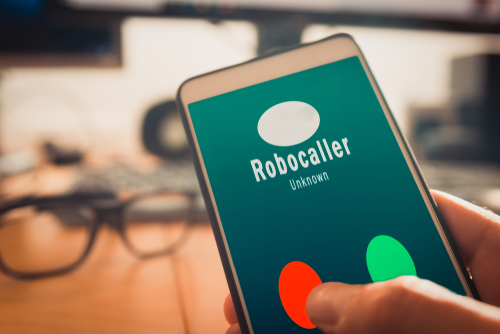We’re only a little over halfway through 2023, but it has already been a big year for new legislation protecting consumers from robocalls. In the last few months, Washington, New Jersey, Maryland, New Hampshire, Tennessee, and others have taken legal action to quell unwanted spam and telemarketing calls and texts in their states. Considering the fact that unwanted calls are still the top consumer complaint to the Federal Communications Commission, these steps are much needed. And while they are primarily being taken to protect consumers, they are also a good thing for businesses operating call centers. Here’s why.
In recent years, customers have become so inundated with telemarketing calls, spam calls, and robocalls that many have stopped answering phone calls that come from an unknown number all together, even if their cell phone provider doesn’t identify the call as spam. This is a big problem for call centers.
Sales-oriented call centers who spend time and money on collecting quality leads struggle to reach those potential customers who may want or need their product or services. Customer service-based call centers that use outbound calls to reach customers, such as to inform them about product changes or updates, follow up regarding previous issues the customer experienced, or check in with new customers about how things are going, see those efforts to establish open lines of communication with their customer base failing and/or not being worth the time and investment. And call centers and telephone answering services that need to reach customers to schedule, change, or confirm appointments and service calls sometimes need to call customers multiple times or leave multiple voicemails before reaching the customer, which can disrupt scheduling for both the service provider and the customer.
We’ve already seen that these laws work. In Florida, legislation was passed in 2021 that went into effect in 2022 to protect consumers from robocalls and the law immediately resulted in a 45% decrease in complaints to the Federal Trade Commission about unwanted calls. Once people begin to see that these laws work, they will gradually begin to trust again that the calls they are receiving—even those that come from unknown numbers—are calls that they want to answer. That the number they don’t have saved but with a nearby area code is more likely to be their plumber or their doctor’s office than it is to be a robocall or someone trying to sell them a timeshare. And the more this trust builds, the more likely it is that if they do receive a cold call from a company they will hear you out, since they will be starting with the belief that the call must be coming from a reputable company if it even got through to their phone in the first place.
Companies for whom their call center plays a central role in their business should not be scared by this legislation. In fact, they should welcome it. It will only serve to rebuild trust with consumers and strengthen their business in the long run.
As legislation continues to pass and companies continue to grow, they will also need a reputable and reliable call center platform like CallShaper to support their business. To learn more, request a demo today.


Leave A Comment